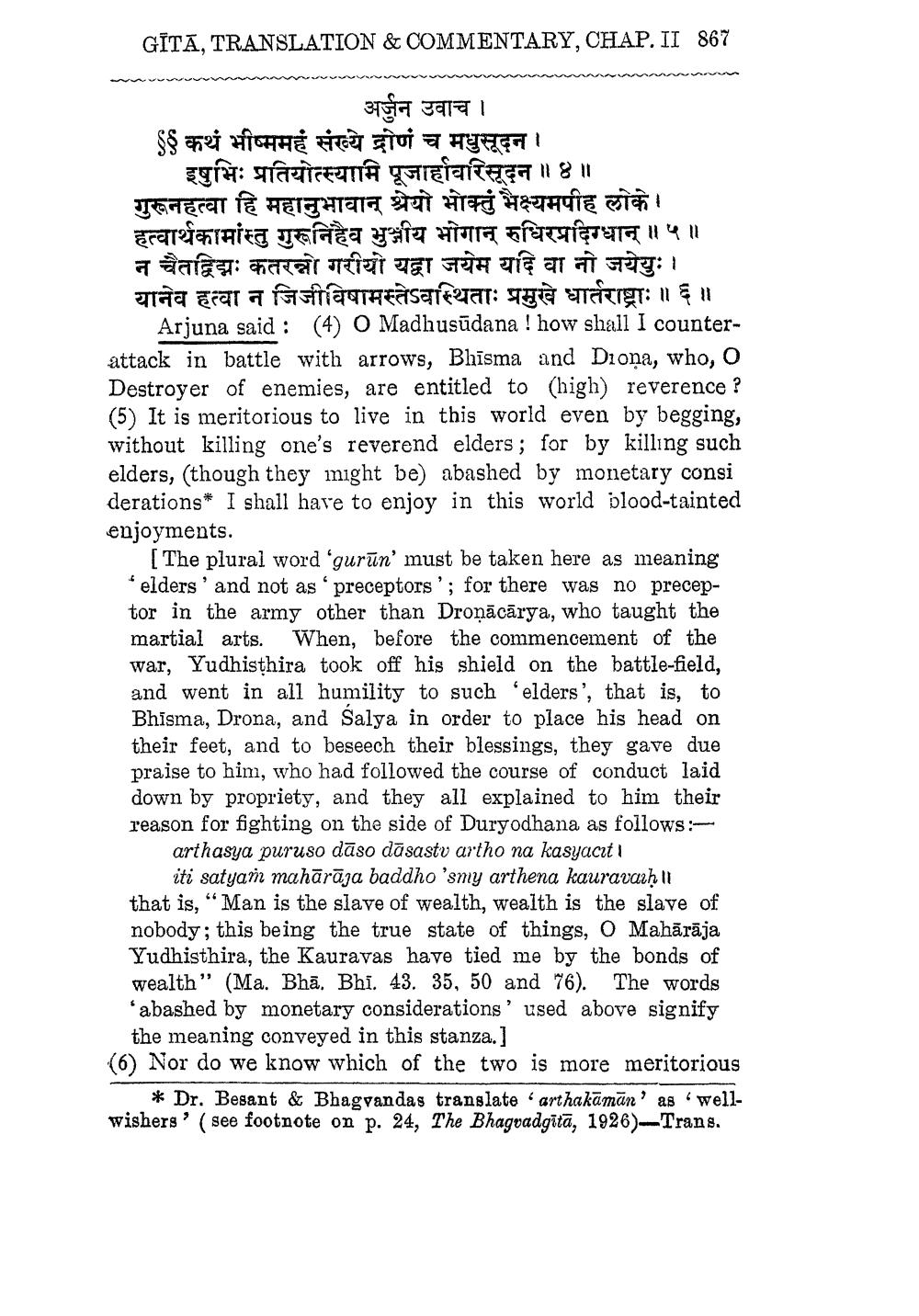________________
GITĀ, TRANSLATION & COMMENTARY, CHAP. II 867
अर्जुन उवाच । $ कथं भीष्ममहं संख्ये द्रोणं च मधुसूदन ।
इषुभिः प्रतियोत्स्यामि पूजाह्नवरिसूदन ॥४॥ गुरूनहत्वा हि महानुभावान् श्रेयो भोक्तुं भक्ष्यमपीह लोके। हत्वार्थकामांस्तु गुरूनिहैव भुञ्जीय भोगान् रुधिरप्रदिग्धान् ॥५॥ न चैतद्विद्मः कतरन्नो गरीयो यद्वा जयेम यदि वा नो जयेयुः। यानेव हत्वा न जिजीविषामस्तेऽवस्थिताः प्रमुखे धार्तराष्ट्राः ॥६॥
Arjuna said : (4) O Madhusūdana ! how shall I counterattack in battle with arrows, Bhīsma and Diona, who, O Destroyer of enemies, are entitled to (high) reverence ? (5) It is meritorious to live in this world even by begging, without killing one's reverend elders; for by killing such elders, (though they might be) abashed by monetary consi derations* I shall have to enjoy in this world blood-tainted enjoyments.
[The plural word 'gurūn' must be taken here as meaning * elders' and not as preceptors'; for there was no preceptor in the army other than Dronācārya, who taught the martial arts. When, before the commencement of the war, Yudhisthira took off his shield on the battle-field, and went in all humility to such elders', that is, to Bhīsma, Drona, and Salya in order to place his head on their feet, and to beseech their blessings, they gave due praise to him, who had followed the course of conduct laid down by propriety, and they all explained to him their reason for fighting on the side of Duryodhana as follows:
arthasya puruso dāso dāsastv artho na kasyacit !
iti satyam mahārāja baddho 'smy arthena kauravaih Il that is, “Man is the slave of wealth, wealth is the slave of nobody; this being the true state of things, O Mahārāja Yudhisthira, the Kauravas have tied me by the bonds of wealth" (Ma. Bhā. Bhi. 43. 35, 50 and 76). The words * abashed by monetary considerations' used above signify
the meaning conveyed in this stanza.] (6) Nor do we know which of the two is more meritorious
* Dr. Besant & Bhagvandas translate 'arthakamān' as wellwishers' (see footnote on p. 24, The Bhagvadgitā, 1926)--Trans.




